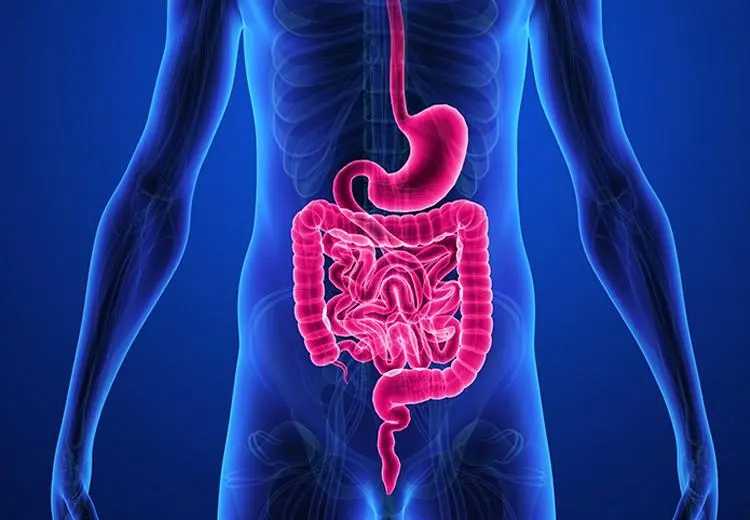
You’re eating well, exercising regularly, and doing everything right—but something still feels off. Maybe you’re constantly tired, struggling with digestive issues, or noticing strange tingling sensations in your hands and feet. The culprit could be a vitamin B12 deficiency, a familiar yet often overlooked condition.
Vitamin B12 plays a crucial role in keeping your body functioning optimally, and when levels are low, your body starts sending distress signals. Here are five key signs you might lack this vital nutrient—and what you can do about it.
1. Fatigue and Weakness

One of the earliest and most common signs of a vitamin B12 deficiency is persistent fatigue and weakness. If you find yourself feeling unusually tired despite getting enough sleep, it could be because your body isn’t producing enough red blood cells. Vitamin B12 is essential for red blood cell production, which carries oxygen throughout your body. Without sufficient oxygen, your energy levels plummet, leaving you feeling drained and weak.
To address this, incorporating B12-rich foods into your diet is crucial. Meat, poultry, fish, eggs, and dairy are excellent sources of vitamin B12. If you’re vegetarian or vegan, you may need to consider B12 supplements, as plant-based diets often lack adequate B12.
If your fatigue persists despite dietary changes, it is important to see a doctor. Sometimes, B12 injections might be necessary for a quicker and more effective boost in your energy levels.
Read: Why You Should Walk Every Day: A Simple Habit with Powerful Health Benefits
2. Gastrointestinal Issues

Are you experiencing unexplained digestive problems, such as nausea, bloating, diarrhea, or constipation? Vitamin B12 deficiency can disrupt the digestive system, leading to a range of gastrointestinal issues. B12 is crucial for maintaining healthy gut cells, and a deficiency can cause inflammation and poor absorption of nutrients.
To help alleviate these symptoms, you should increase your intake of fiber-rich foods like fruits, vegetables, and whole grains to support digestion. Additionally, pay close attention to your B12 intake, especially if you’re on medications that affect stomach acid, as these can hinder B12 absorption. If your digestive issues are severe or persistent, consulting with a healthcare provider for a full evaluation is essential to ensure proper treatment.
3. Shortness of Breath and Dizziness

If you often feel short of breath or dizzy without an apparent reason, your body may struggle with oxygen distribution due to a lack of vitamin B12. B12 is vital for red blood cell production, so a deficiency can lead to anemia—a condition where your body doesn’t have enough healthy red blood cells to carry adequate oxygen. This can result in frequent bouts of dizziness and difficulty catching your breath.
To address this, increasing your intake of B12-rich foods or taking a supplement can help improve your oxygen levels. Additionally, practicing deep breathing exercises can improve oxygen flow and help alleviate symptoms.
However, if shortness of breath and dizziness become a regular occurrence, seeking medical advice is crucial, as this could indicate a more serious underlying issue that needs prompt attention.
4. Numbness and Tingling

One of the more alarming signs of vitamin B12 deficiency is numbness and tingling in hands, feet, or limbs. This happens because B12 is crucial for producing myelin, the protective sheath surrounding nerves. Without enough B12, nerve damage can occur, leading to these uncomfortable sensations.
To combat this, adding B12 supplements to your routine is essential, especially if you’re experiencing these symptoms regularly. Staying active can also promote good circulation and nerve health, which may help reduce these sensations. It’s important to visit a healthcare provider for a proper diagnosis, as prolonged deficiency can lead to permanent nerve damage if left untreated.
Read: Top 10 Daily Habits for a Healthier Lifestyle
5. Mouth Ulcers and Glossitis

A vitamin B12 deficiency can also manifest in your mouth, with symptoms like mouth ulcers, a swollen tongue (glossitis), and a burning sensation on your tongue. Glossitis can make your tongue look red and swollen and can also be painful, making it difficult to eat or speak comfortably. These symptoms occur because B12 is essential for maintaining healthy cells in your mouth.
Increasing your intake of B12-rich foods such as eggs, dairy, and fortified cereals can help alleviate these symptoms. Staying hydrated and avoiding spicy foods that can irritate mouth ulcers is also beneficial. If these symptoms persist, consulting with a dentist or doctor is recommended, as they can provide specific treatments to alleviate discomfort and address the underlying deficiency.
Vitamin B12 is a vital nutrient that keeps your body and mind functioning optimally. If you’re experiencing any of these symptoms—fatigue, digestive issues, shortness of breath, numbness, or mouth problems—it might be time to evaluate your B12 levels. You can address these symptoms and restore your health by incorporating B12-rich foods into your diet, considering supplements, and consulting with healthcare providers.
If you’re experiencing any of these symptoms, take action today. Schedule a check-up with your healthcare provider, adjust your diet, and consider supplementation to ensure you’re getting enough vitamin B12. Your health is worth it—don’t let a deficiency hold you back from living your best life.
